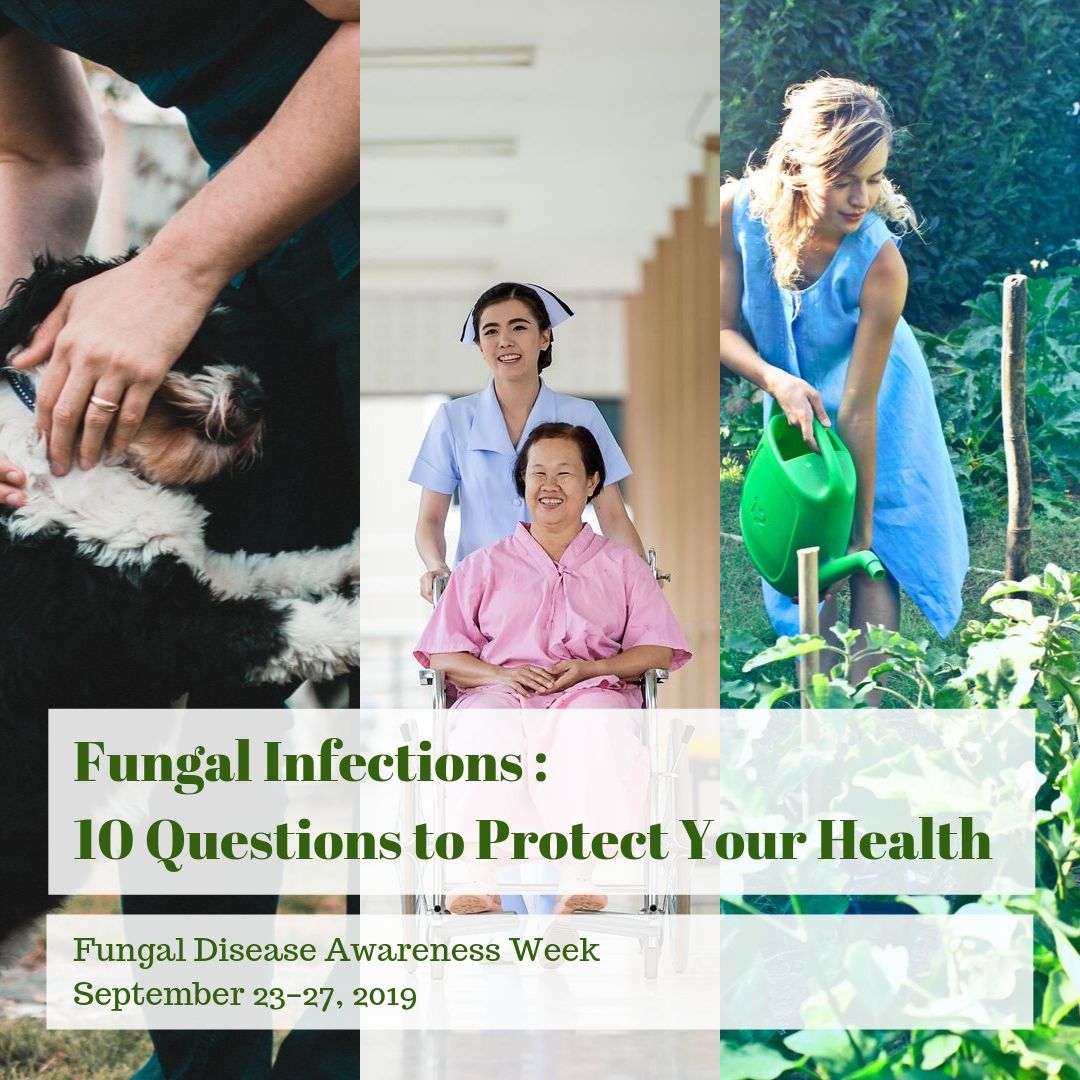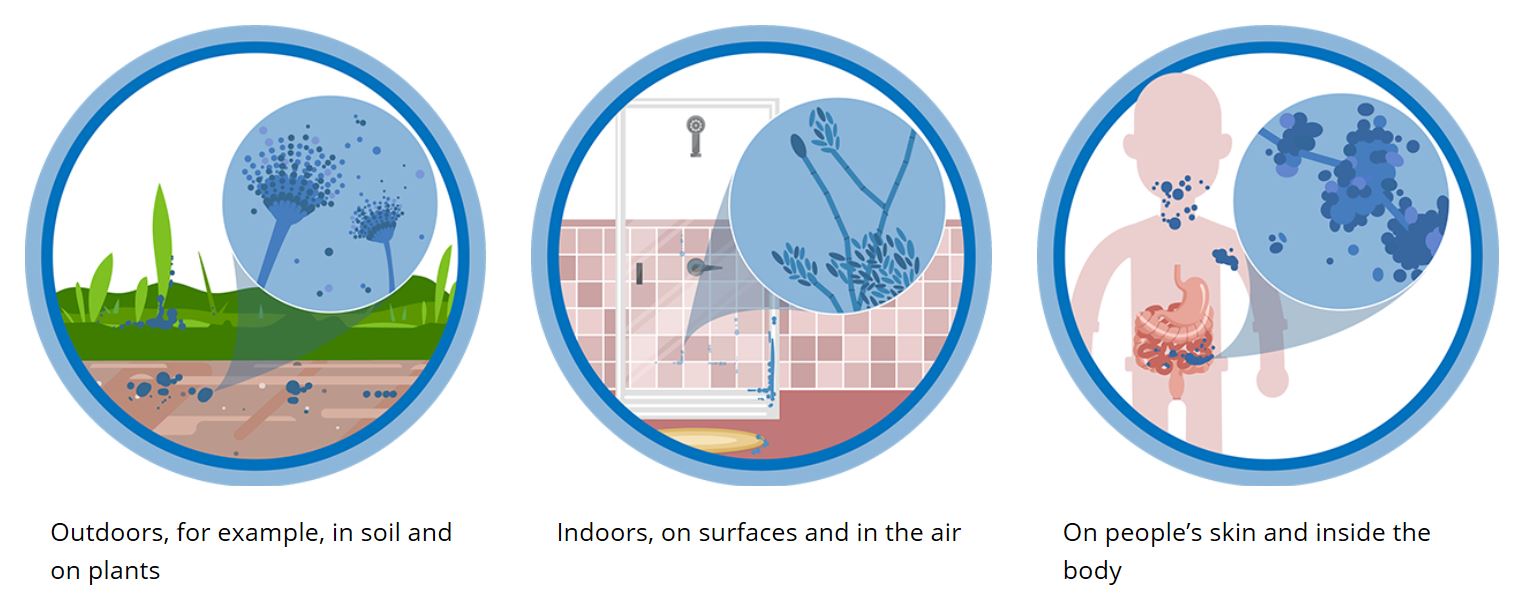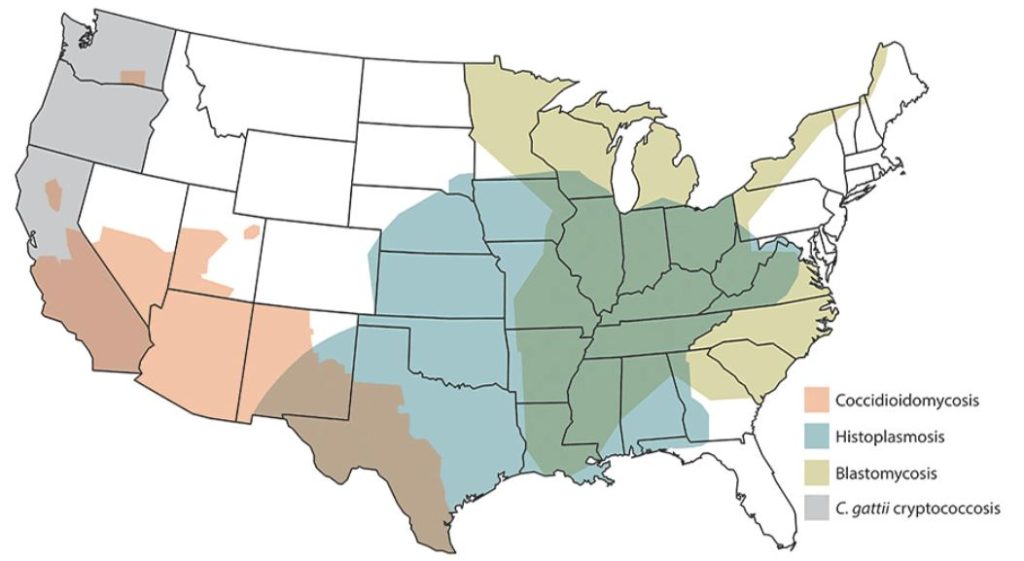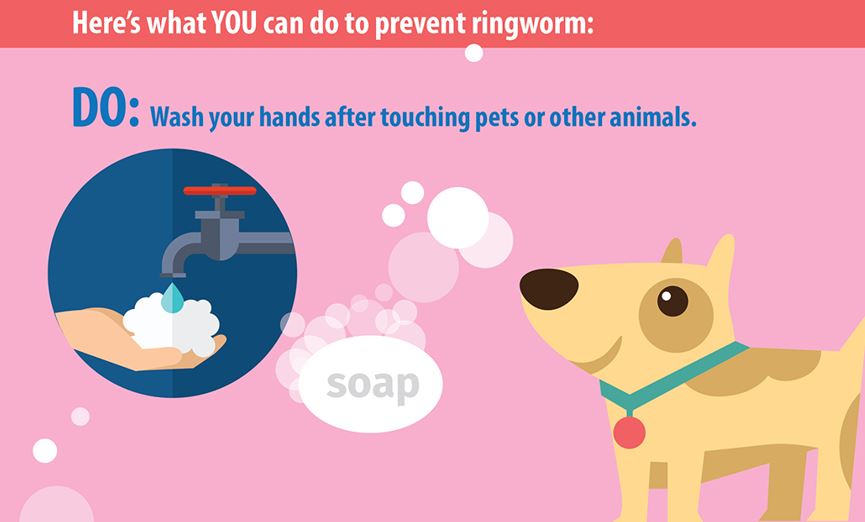
10 Questions to Help You Learn Your Chance of Getting a Fungal Infection

Fungal Disease Awareness Week is September 23–27, 2019. Fungal diseases can affect anyone. Most fungi are not dangerous, but some types can be harmful to health. Learning about them can help you and your doctor recognize the symptoms of a fungal disease early and may help prevent serious complications.
About Fungal Diseases
Fungi are everywhere. There are millions of different species of fungi on Earth, but only about 300 of those are known to make people sick. Fungal infections are often caused by microscopic fungi that are common in the environment. Fungi live outdoors in soil and on plants as well as on many indoor surfaces and on human skin.
Mild fungal skin infections can look like a rash and are very common. For example, ringworm is a skin infection caused by a fungus, not a worm! Fungal infections in the lungs can be more serious and often cause symptoms that are similar to other illnesses, such as the flu or tuberculosis. Fungal meningitis and bloodstream infections are less common than skin and lung infections but can be life-threatening. Because the symptoms of fungal infections can be similar to those of other illnesses, proper diagnosis and treatment are often delayed. The more you know about fungal infections and your chances of getting one, the better you can protect your health.

10 Questions to Help You Learn Your Chance of Getting a Fungal Infection
Have you wondered about your chances of getting a fungal infection?, Here are 10 questions you can use to understand fungal infections, learn how you can get sick, and know what you need to do to stay healthy.
1. Where do you live and travel?
Fungi that can cause serious infections are more common in some parts of the United States and world. For example, the fungus that causes Valley fever (also called coccidioidomycosis) is found mainly in the southwestern United States. The fungi that cause histoplasmosis and blastomycosis occur most often in the eastern United States. These infections usually cause a lung infection that is often mistaken for flu or a bacterial pneumonia.

2. What types of activities are you doing?
Harmful fungi can be found in air, dust, and soil. Histoplasma grows especially well in soil that contains bird or bat droppings. During activities like digging, gardening, cleaning chicken coops, and visiting caves you could inhale fungi that may cause infection.
3. Do you have a dog or cat?
4. Have you recently taken antibiotics?
Antibiotics can make women more likely to get vulvovaginal candidiasis, also known as a vaginal yeast infection. Women who are pregnant or those who have weakened immune systems also are more likely to get this condition. Men also can get genital candidiasis.
5. Are you taking any medications that affect your immune system?
Medications used to treat conditions like rheumatoid arthritis or lupus may weaken your immune system and increase the chance of getting a fungal infection.
6. Are you living with HIV/AIDS?
People living with HIV/AIDS (particularly those with CD4 counts less than 200) may be more likely to get fungal infections. Two well-known fungal infections associated with HIV/AIDS in the United States are oral candidiasis (thrush) and Pneumocystis pneumonia. Worldwide, cryptococcal meningitis is a major cause of illness in people living with HIV/AIDS.
7. Are you going to be hospitalized?
In the United States, one of the most common bloodstream infections in hospitalized patients is caused by a fungus called Candida. Candida normally lives in the gastrointestinal tract and on skin without causing any problems, but it can enter the bloodstream during a hospital stay and cause infection.
8. Have you recently had a transplant?
People who have recently had an organ transplant or a stem cell transplant have a greater chance of developing a fungal infection since their immune systems are weakened. Doctors prescribe antifungal medication for some transplant patients to prevent fungal infections from developing.
9. Are you receiving chemotherapy or radiation treatments?
Cancer treatment, such as chemotherapy and radiation, weakens your immune system and may increase the chance you will get a fungal infection since their immune systems are weakened.
10. Do you have symptoms of pneumonia that are not getting better with antibiotics?
Fungal infections, especially lung infections like Valley fever, histoplasmosis, and aspergillosis, can have similar symptoms as bacterial infections. However, antibiotics don’t work for fungal infections. Early testing for fungal infections reduces unnecessary antibiotic use and allows people to start treatment with antifungal medication, if necessary.
Source:
CDC
Image:
CDC



Most Commented